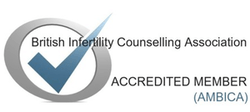What is counselling?
Counselling is a talking therapy. By listening empathically I can help you explore, understand and gain acceptance of events and feelings that are causing you distress. I can also help you discover another perspective and change your thinking to a more positive outlook on life.
What happens in counselling?
It can involve talking, silent reflection, writing, drawing, shell work and personal development and planning exercises. My approach is an integration of humanistic approaches, based on person-centred counselling. This means that you, the client, decide what you talk about in a safe and confidential environment. With guidance, you determine your direction.
My philosophy is based on hope and optimism: that our lives, while rarely perfect, can be better. We can learn to change and become more content, function better and be more fulfilled.
Where are you based?
I work from home in Bookham (Google Map) in a dedicated room which offers privacy and confidentiality. I also offer telephone and online counselling so location doesn’t matter.
How do I get started?
The first session comprises information gathering so that I can assess your needs. We then map out your goals and how you might achieve them. We sign a contract which is an agreement about attendance, confidentiality, cancellation and what you can expect from me. Payment for a block of sessions should be made prior to starting; for single sessions payment is made at each appointment.
Is counselling confidential?
Yes, with one exclusion. If I think that you have the intention to either harm yourself or someone else then I am obliged to report this to an authority. Like all counsellors, I might discuss some of the content of our sessions with my supervisor, but this will be anonymously. Otherwise I do not discuss our work together with anyone. If a third party contact or referral is helpful I will do this with your permission only.
How many sessions will I need?
Some people just want one or two sessions to talk through things. Most people take a few weeks before they feel able to move on. Others need more time, perhaps meeting less often. An initial meeting and assessment will enable us to gain a better idea.
Are there any people you don’t counsel?
Yes. If you have a severe mental health condition, such as psychosis, then I would refer you to your GP as you require psychiatric support.
I do not counsel couples with relationship breakdown or people with addictions.
I do not counsel people I know or family members of clients.
How will I know when I’m better?
We will discuss how you feel in the first session and also how you want to feel. Sometimes goals are difficult to define but talking and thinking about this can help. I also use scaling (0-10) to put a measure on this. If you have more than one issue to work through we might take these one at a time, so goals can change as we progress.
Do you keep information on me?
Yes. I take your name and contact details, basic information about your family members and make brief notes about the content of each session. I keep these in a locked cabinet for six years.
Can we meet up in social settings or online?
Our relationship is a professional one and I do not socialise with clients, or befriend on social media. If we bump into each other outside of the counselling session you may be with people who do not know about your counselling. I will not stop to talk unless you do so. Please do not take offence at this.
What will it cost?
Please see fees.

